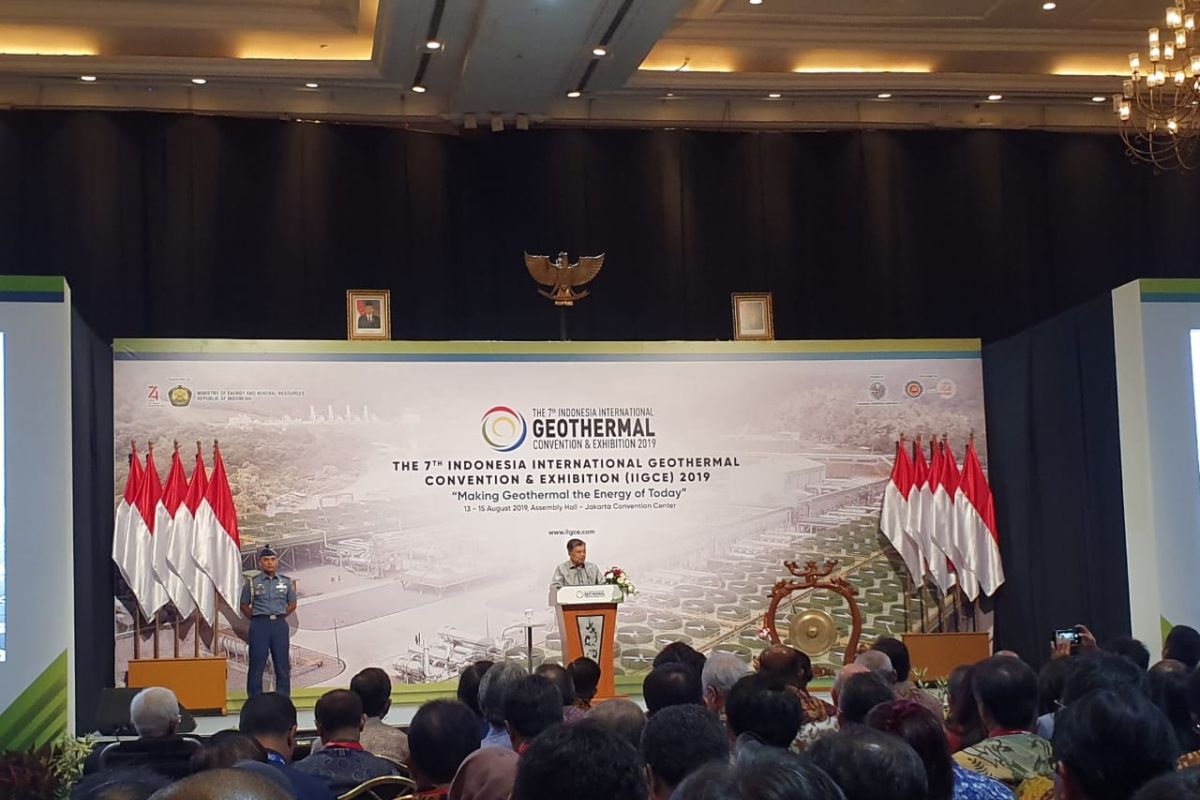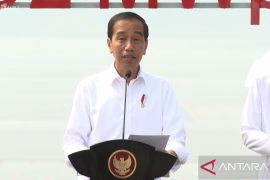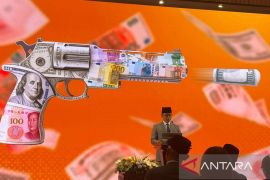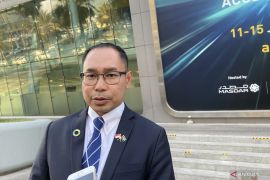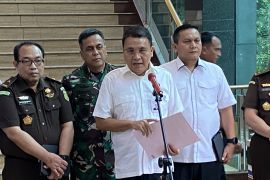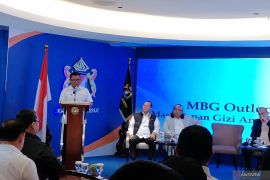This condition must collectively be responded toJakarta (ANTARA) - Indonesia has a sluggish development of renewable energy power plants, which is necessary to fulfill the stockpiles of its national electricity, Vice President Jusuf Kalla said Tuesday.
"This condition must collectively be responded to," he told attendees at Indonesia's 7th International Geothermal Convention and Exhibition 2019 here Tuesday. Kalla encouraged the Energy and Mineral Resources Minister and his deputy to sit together with those from the state-owned electricity firm PT PLN (Persero) and business associations to find solutions to this problem.
Some legal issues need to be clarified to ease the fears of individuals involved in the construction of power infrastructure and the execution of policies, he said.
Fear of legal issues often arising from corruption cases worries those attempting to meet the nation's electricity demands and infrastructure development projects, Kalla said while quoting the example of several members of PLN's board of directors who had been jailed.
Once the legal implications are clarified, the state officials and those from the private sector would not be in two minds while executing energy-related policies, he said.
The performance of the PLN and its private partners in the completion of electricity infrastructure projects to meet the people's rising demands has seen an improvement every year, Kalla said.
Related news: Surabaya installs solar-powered traffic lights to anticipate blackout
Related news: PLN urged to strengthen infrastructure capability: legislator
Regarding PLN's infrastructure capability, House of Representatives Deputy Speaker Fadli Zon called for revamping the state-owned electricity firm to prevent a recurrence of the major blackout August 4 which affected certain parts of Java Island, including Jakarta.
"The major blackout that occurred August 4 is being called 'blackout 4.0'," Fadli Zon noted in a statement on the power outage.
This so-called "blackout 4.0" proved that PLN's digital and other infrastructure is so fragile that it could be paralyzed easily, Zon who is also the Great Indonesia Movement (Gerindra) Party's deputy chairman, stated.
The blackout that hit the regions of Jakarta, Banten, West Java, Central Java, and East Java was nothing short of nightmarish for scores of Indonesians and foreign travelers.
On that Sunday, the power outage disrupted the Indonesian capital city's commuter line and MRT services, massively hindering the people's mobility.
It also affected the business activities of several small and medium enterprises (SMEs) that did not possess backup generators.
PT PLN (Persero) extended its apology and claimed that it was caused by the tripping of the Suralaya Turbine Gas from numbers 1 to 6, while its turbine gas number 7 was off.
Simultaneously, the Cilegon Gas Turbine Combined-Cycle (GTCC) Power Plant also tripped. As a result, residents living in Jakarta's greater areas were hit.
The blackout also hit those residing in West Java Province's areas due to troubles experienced in the 500 kV Ultrahigh Voltage Transmission. The affected areas comprised Bandung, Bekasi, Cianjur, Cimahi, Cirebon, Garut, Karawang, Purwakarta, Majalaya, Sumedang, Tasikmalaya, Depok, Gunung Putri, Sukabumi, and Bogor.
Related news: Investigation results of Sunday's power outage to be announced: police
Related news: Indonesia needs electricity reserves: Energy watch
Translator: Fransiska Ninditya, Rahmad Nas
Editor: Sri Haryati
Copyright © ANTARA 2019
